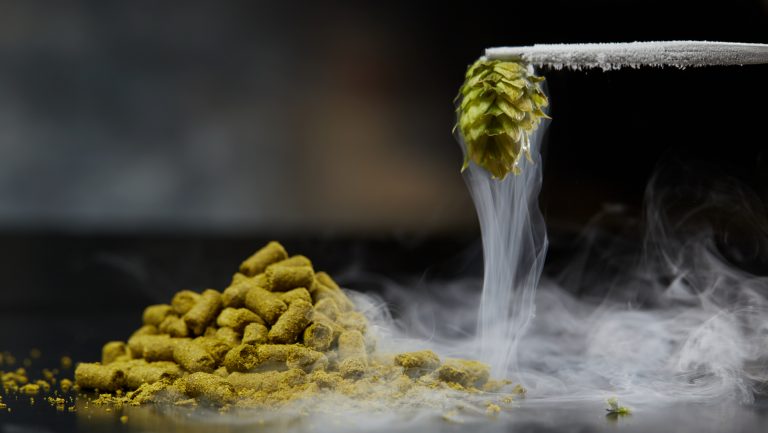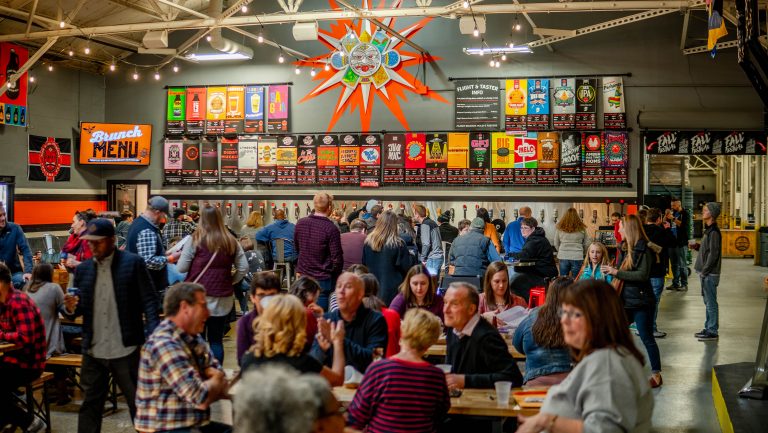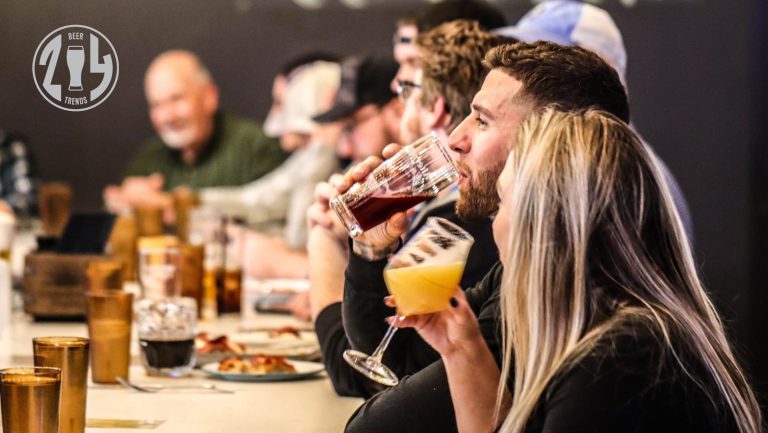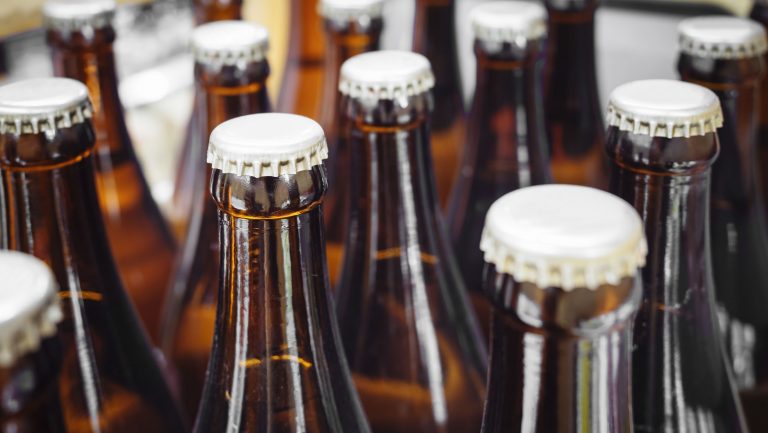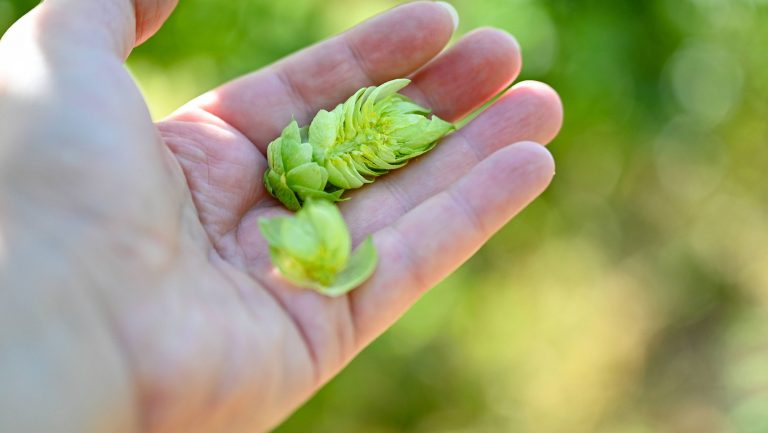German braumeisters have long insisted that brewing is all about the fundamentals. They canonized this view in their 501-year-old Purity Law, the Reinheitsgebot, which dictates that beer can only be made with malted barley, hops, water, and yeast. Five hundred years ago, though, they didn’t actually know much about yeast. And what they knew of Humulus lupulus, the hop plant, is that they grew like wild weeds. Hops were plucked and folded into the brewing process for bittering. They had the added benefit of acting as a natural preservative to stave off spoilage. But the contemporary brewer’s relationship with hops is quite a bit different.
For the past several decades, brewers have primarily been using a pelletized form of hops not only for bittering their beer but for flavoring it; the more sophisticated breweries have brew systems that allow for the use of dried, whole-cone hops. A surge in the American culture of craft beer and its affinity for heavily hopped styles over the past decade helped trigger the development of newly patented hop varieties, such as Mosaics, Citra, Motueka, and Simcoe. It’s estimated that 40 percent of all craft beers feature the hop-forward style, like IPAs.
With IPAs dominating the market over the last few years—accounting for approximately 27 percent of the craft share, according to the Brewers Association—brewers have sought new ways to differentiate their IPAs within the category. Now they’re experimenting with more advanced hop treatments, tinkering with those same hop varieties, but in concentrated powder, oil, and hop hash forms. Could this be the future of beer?

Don’t miss the latest drinks industry news and insights. Sign up for our award-winning newsletters and get insider intel, resources, and trends delivered to your inbox every week.
Cryogenics Enter the Beer Realm
Citrusy and resinous hops have long been harvested in Washington’s Yakima Valley and Oregon’s Willamette Valley, so it’s no surprise that the Pacific Northwest is now becoming an epicenter for the latest research and innovative product development in the world of hops.
Yakima-based hops supply company Yakima Chief–Hopunion (YCH) is breaking ground with a new product in its Cryo Hops line—a lupulin powder, which is created by proprietary cryogenic processing.
The powder, called LupuLN2, is a concentrated form of lupulin—the yellow pollen in a hop cone that contains resins and aromatic oils and is the active ingredient in hops—derived from whole-leaf hops. The cryogenic process involves submerging the whole hop cones into nitrogen, then separating the lupulin glands from the leafy material. Because this powder is twice as potent as traditional hops, YCH explains that brewers who use it can reduce the amount of hops they typically use by half; it also enhances hoppy aromas and flavors while cutting down on vegetal off-flavors.
Brewers Weigh In
At Dogfish Head brewery in Delaware, former lead brewer and current brewing ambassador Bryan Selders says that craft brewers are “driven by a sense of curiosity and [want to] experience new flavors, sensations, and techniques. They’re pushing to learn as much as possible to get beer flavor to another level.” Selders doesn’t necessarily think that hop concentrates are the ultimate key to that next level, however. “Anecdotally,” he says, “the best results have come from an artful blend of using [various forms of hops] all together.”
Fifth-generation hop farmer Blake Crosby of Crosby Hop Farm in Woodburn, Oregon, says, “It’s funny—powders have been around for 20 years, but they’re being reintroduced to a new market.” He explains that hop cones can be pulverized with a hammer mill or flash-frozen with liquid nitrogen; the most desirable elements of the flowers can then be sieved and sold separately. He’s a fan of this new trend, but he also notes that Crosby Hop Farm has been selling a product called hop hash for years that it recovers during its pelletizing process—the production technique is similar to the one used for making cannabis-based hash. Like other concentrated hop powders and oils, this byproduct can be used to flavor and aromatize beer hop-forward styles of beer.
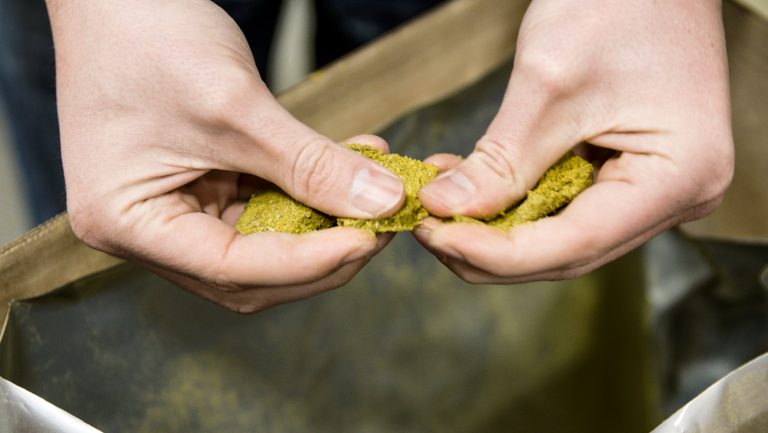
Dogfish’s Selders alludes to the secrecy involved in these manufacturing processes, suggesting that his employer is actively working on a new one. Perhaps this explains the name of Dogfish Head’s new Truth Serum IPA, which incorporates a variety of hop products. “[These products] increase yield and reduce production costs,” says Selders. “Oils are excellent at delivering quality bitterness and flavor stability, though I don’t think brewers will ever 100 percent get away from conventional hops.”
At Breakside Brewery in Portland, Oregon, brewmaster Ben Edmunds says that “the jury is still out on what the best application of those types of hop products is.” He specifically references debittered hop leaves and lupulin powders that are credited with both enhancing desirable terpenes—aromatic essential oil compounds extracted from hops and other plants—and decreasing undesirable vegetal aromas. In the spirit of experimentation, Breakside has begun applying liquid nitrogen to some batches of hop cones to release their lupulin glands by freezing and shattering them, then adding them to some batches of their IPAs, including Breakside IPA, which has received multiple medals and awards. “We stand by it,” says Edmunds. “The beers have done well in competition—and with customers.”
Consumers, in the end, are the real drivers of these new products. If you see people starting to turn away from ultra-modern IPAs, then these things won’t have worked so well. But don’t bank on that happening anytime soon—IPAs made with concentrated hops products appear to be here to stay.

Dispatch
Sign up for our award-winning newsletter
Don’t miss the latest drinks industry news and insights—delivered to your inbox every week.
Brian Yaeger is the author of Red, White, and Brew and Oregon Breweries. A Cicerone Certified Beer Server since 2009, he contributed to The Oxford Companion to Beer and writes for several industry publications. He earned a Master of Professional Writing degree (with a thesis on beer) in 2007 from the University of Southern California.

